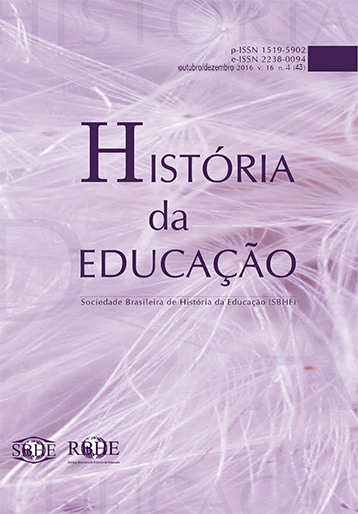Wilhelm Rotermund (1843-1925) living in two cultures
Abstract
Wilhelm Rotermund belonged to a group of foreigner cultural agents whose goal was to introduce in Brazilian textbooks a practical teaching methodology already used in Germany during the nineteenth century. He was also a driver towards education among German descendants, acting both as book and newspaper editor. We identified possible roots for the methodological ideas that underlie his book Rechenfibel: first Book in arithmetic, published in 1879 in the Province of Rio Grande do Sul, Brazil. To accomplish this goal, we examined books by German pedagogues from the eighteenth century, as Goltzsch and Theel, and compared their proposals regarding arithmetic teaching with Rotermund’s. We verified that pedagogical guidance concerning the intuitive method was present in German works that we have analyzed and also in Rotermund’s book.Downloads
Os direitos autorais pertencem exclusivamente aos autores. Os direitos de licenciamento utilizados pelo periódico consistem na licença Creative Commons Attribution 4.0 (CC BY 4.0): são permitidos o acompartilhamento (cópia e distribuição do material em qualqer meio ou formato) e adaptação (remix, transformação e criação de material a partir do conteúdo assim licenciado) para quaisquer fins, inclusive comerciais.
Recomenda-se a leitura desse link para maiores informações sobre o tema: fornecimento de créditos e referências de forma correta, entre outros detalhes cruciais para uso adequado do material licenciado.













